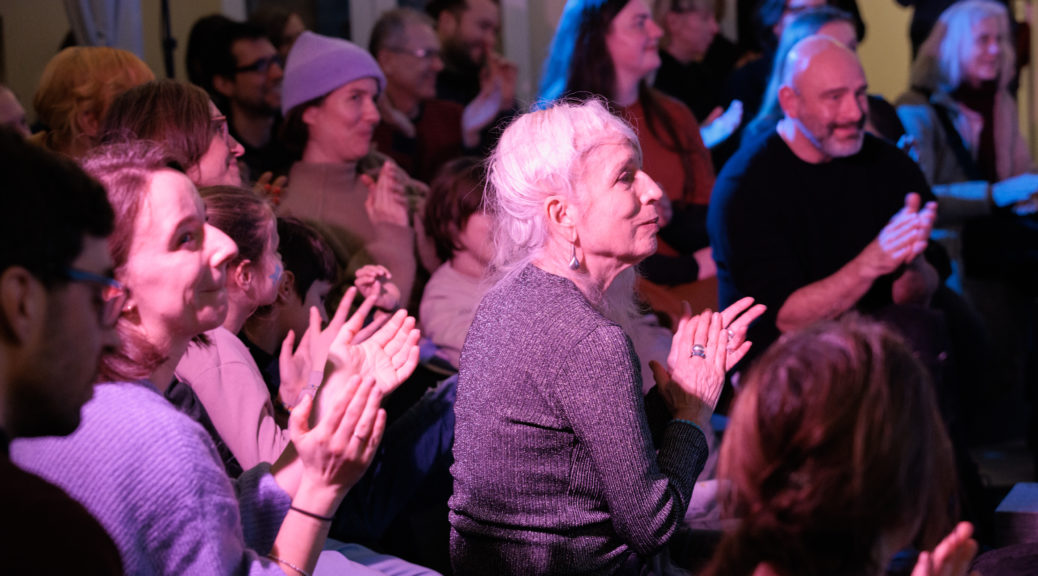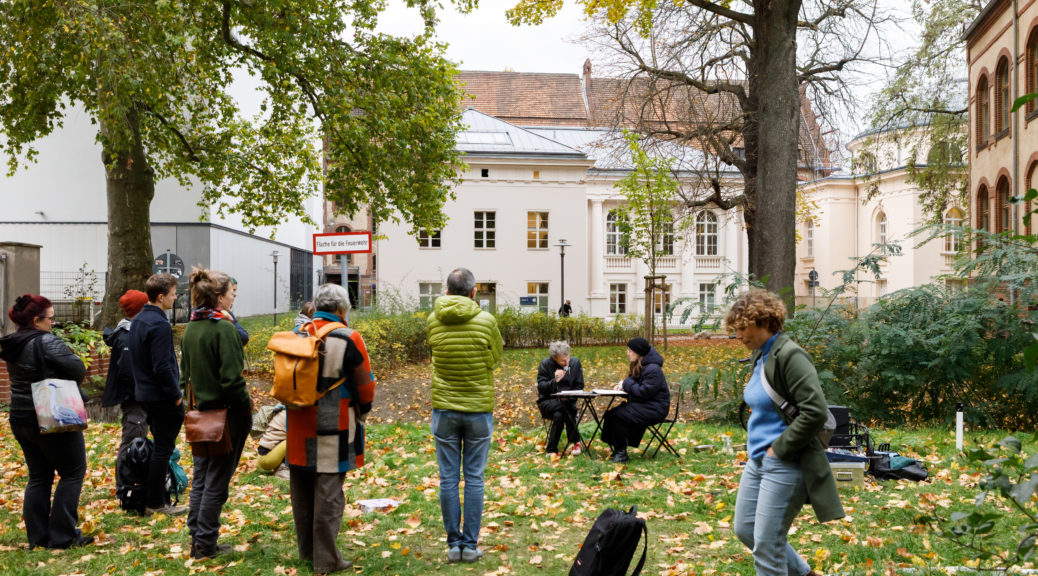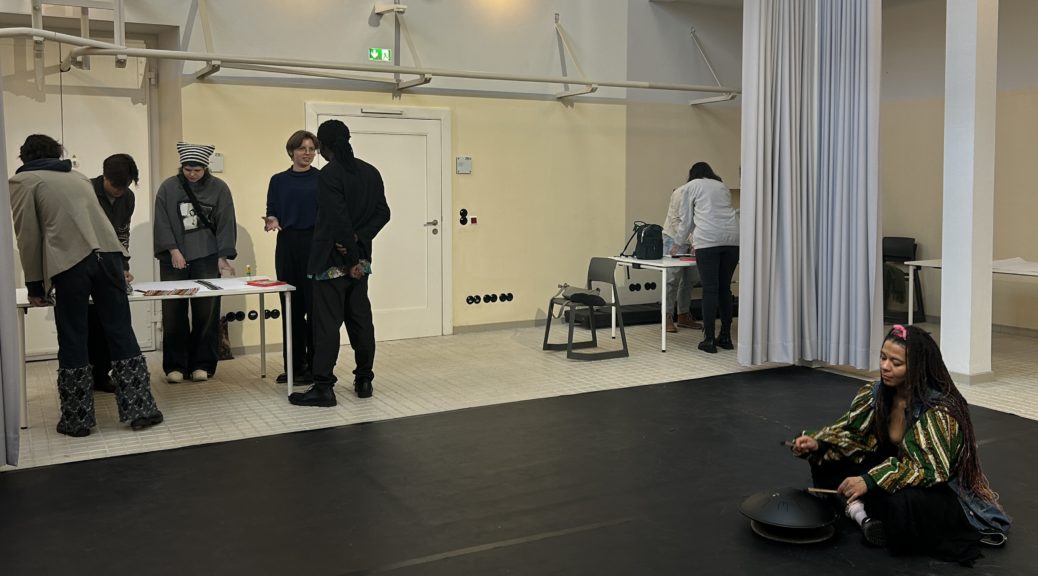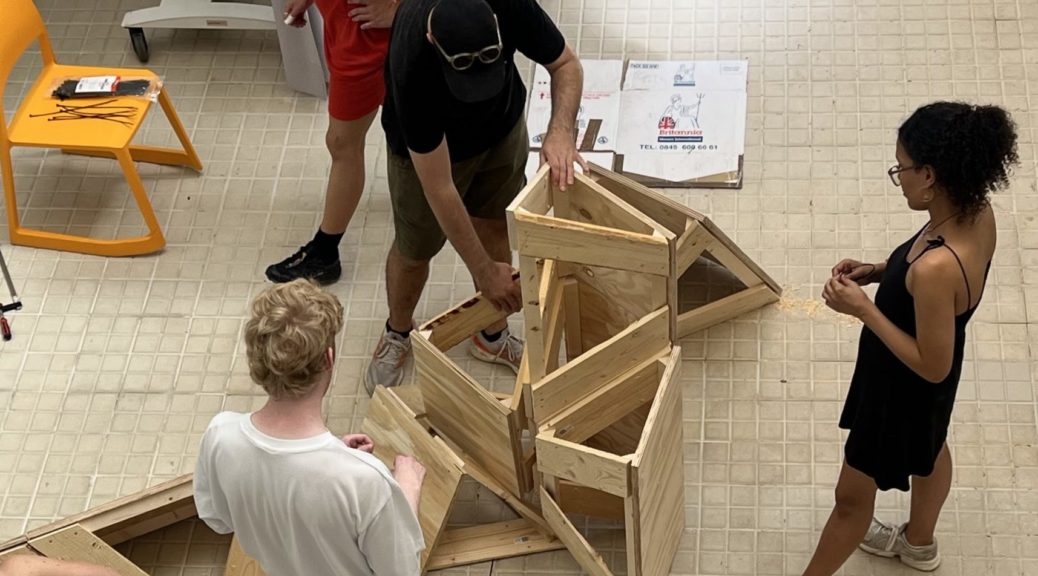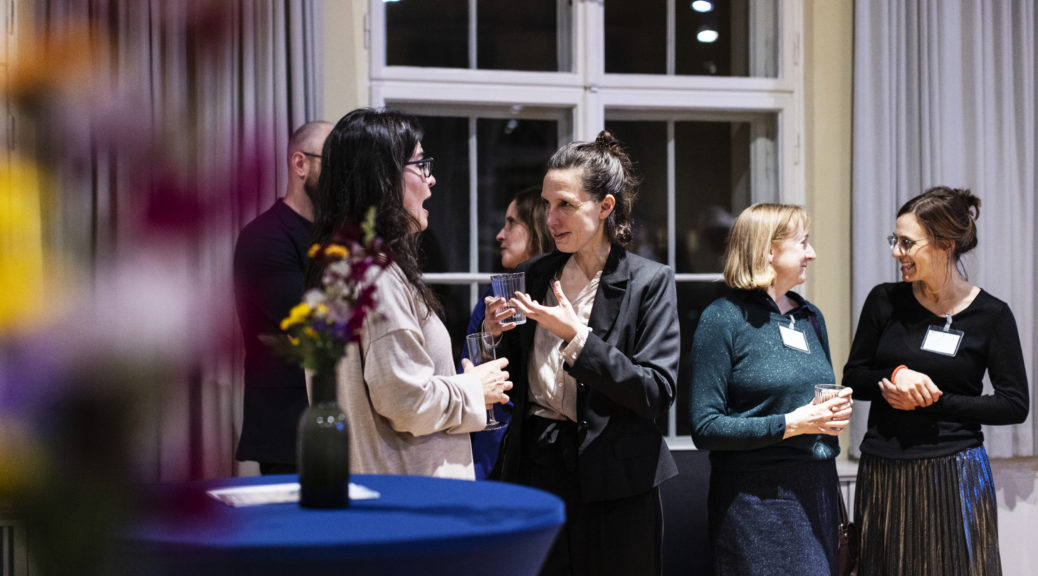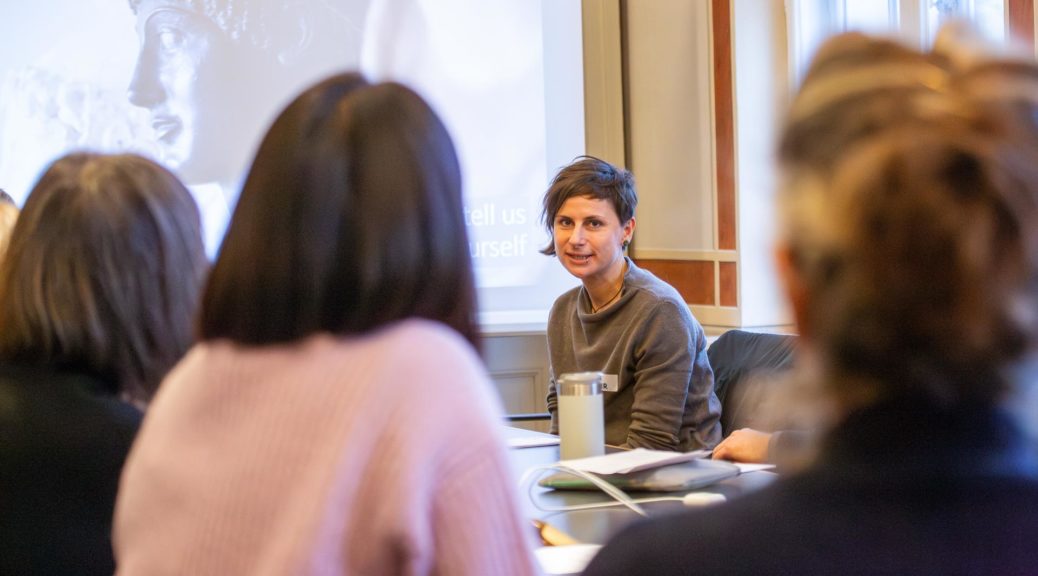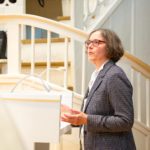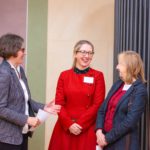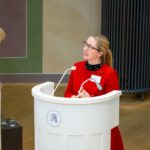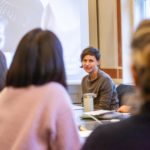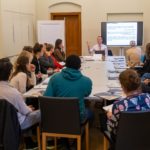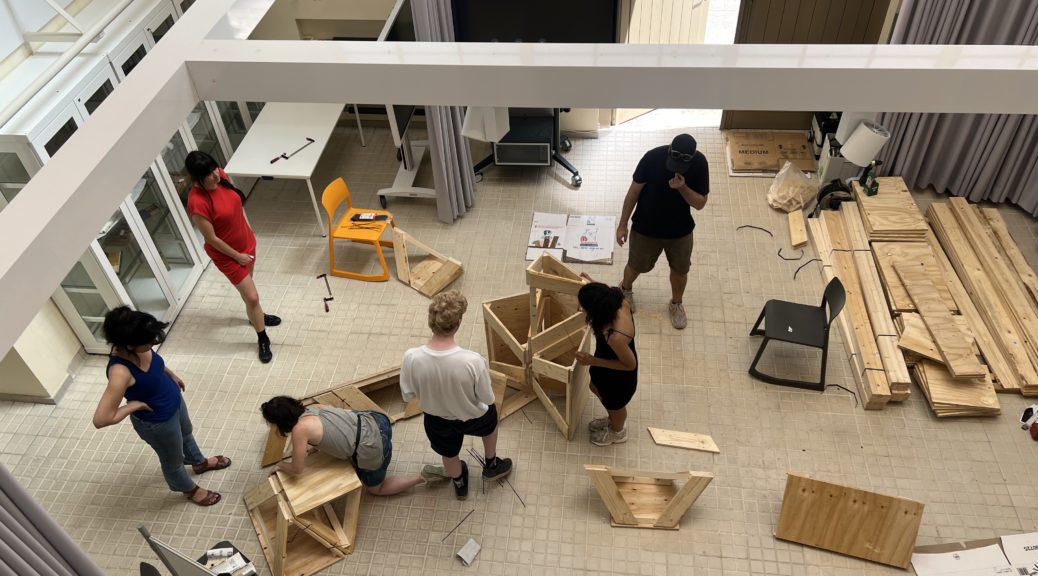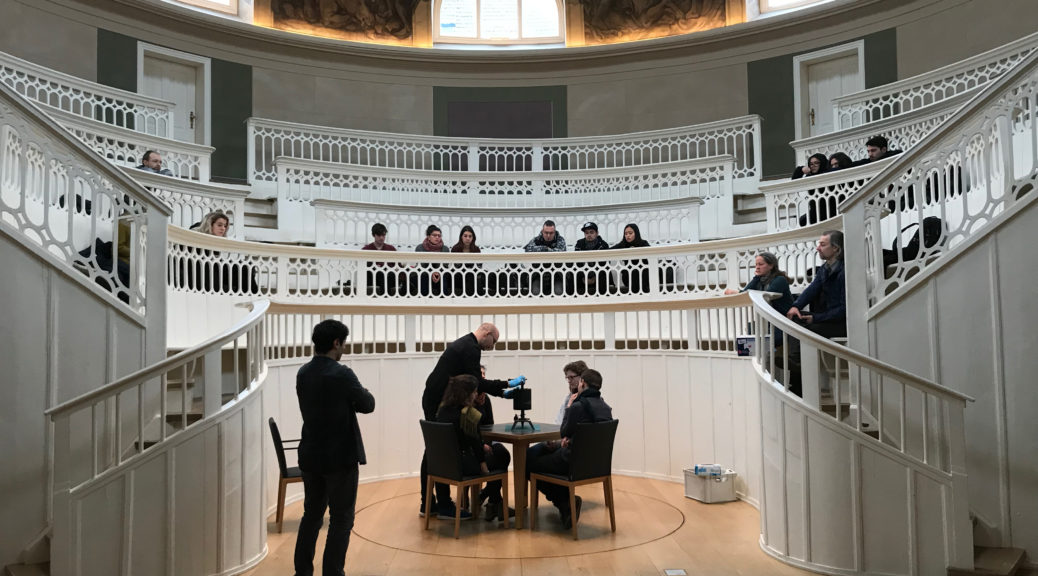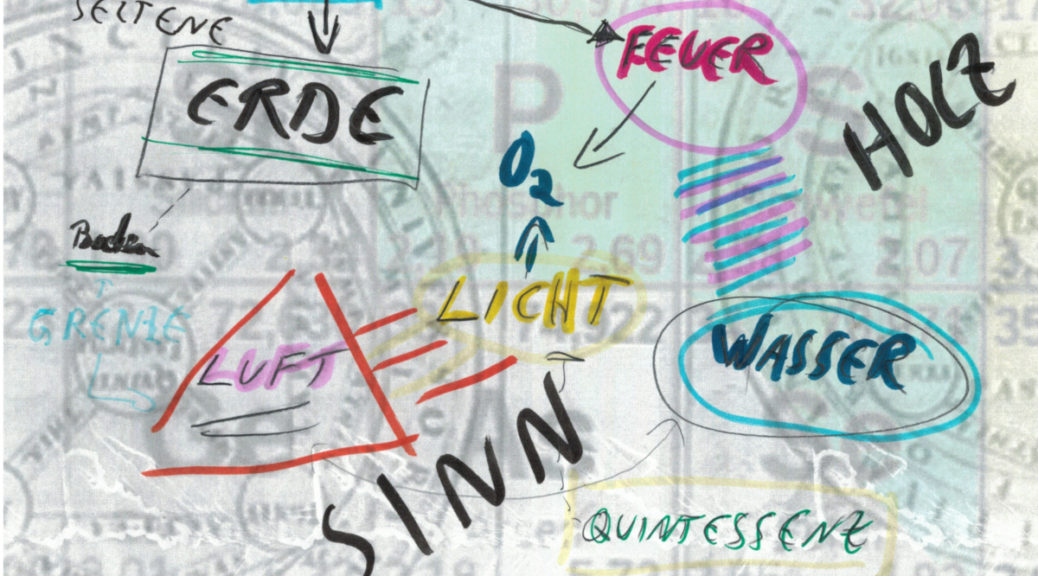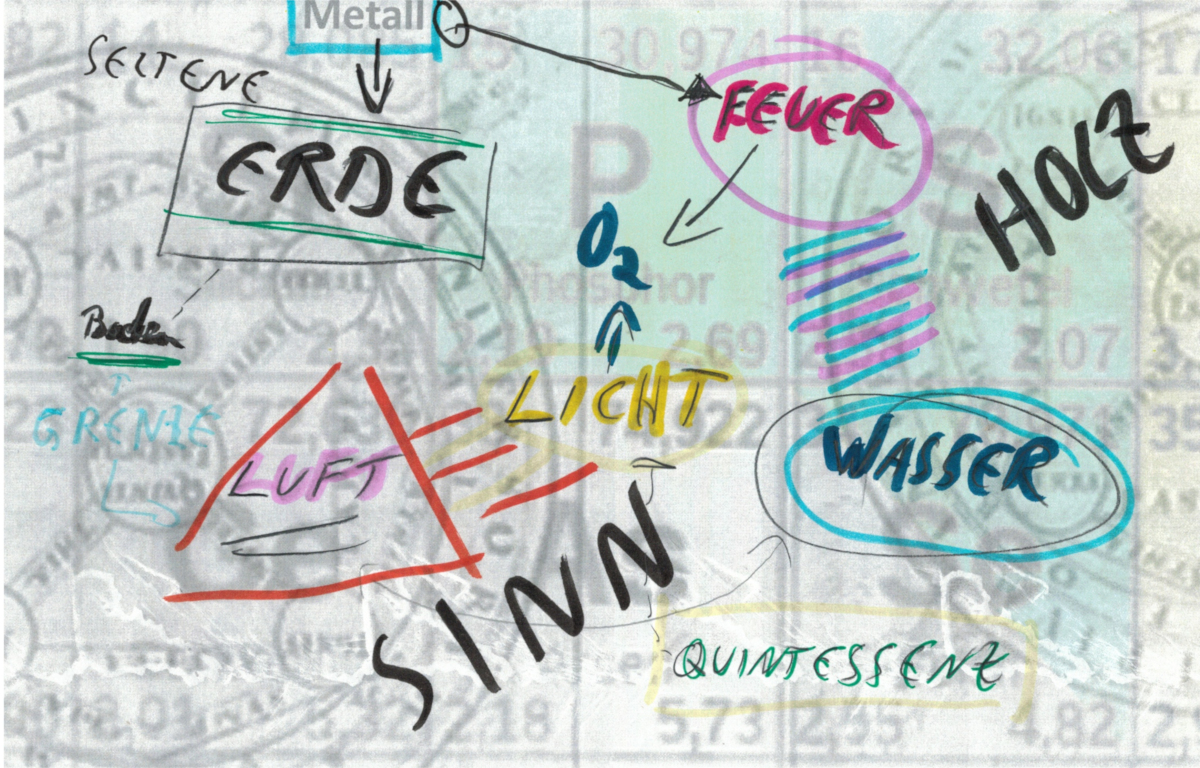HU Office for Knowledge Exchange with Society at Zentrum für Kulturtechnik | TD-Lab – Laboratory for Transdisciplinary Research of the Berlin University Alliance
Time: Wednesday, 20. November 2024, 1:00 pm to 5:30 pm
Place: Humboldt-Universität zu Berlin, Campus Nord, Philippstraße 13, Haus 3, 10115 Berlin
(Keynote/Workshops: Entrance Tieranatomisches Theater;
Reception: Entrance Hermann von Helmholtz-Zentrum für Kulturtechnik)
This is an in-person event that will take place in English. Please note that the workshops are currently fully booked and that your name will be added to a waiting list. Please register your interest here.
Researching with Society: International Perspectives
We are pleased to announce the event “Researching with Society: International Perspectives” on November 20th 2024, a get-together at Humboldt-Universität zu Berlin on participatory research and public engagement offering learning and networking opportunities for Berlin researchers. The day will feature a keynote speech and workshops by international experts from the University of Oxford followed by a reception allowing time and space for networking and discussions.
Science and universities have a central role and responsibility in dealing with major societal challenges of our time. Knowledge exchange between academia and society is thus increasingly becoming an important part of research and knowledge production. The event welcomes all researchers, members of BUA institutions and interested science-related organizations to explore approaches and impact of participatory research and public engagement, discuss civic responsibilities of universities and network with partners from the University of Oxford. Please join us for the following program:
12:40 pm Doors open at Tieranatomisches Theater
1:00-1:45 pm Keynote Speech: Enhancing Research Through Public Engagement – Strengthening Participatory Approaches in Academia
by Dr. Victoria McGuinness, Head of Public Engagement, Head of The Oxford Research Centre in the Humanities (TORCH), University of Oxford
preceded by a welcome by Prof. Dr. Julia von Blumenthal, president of HU Berlin
This talk will explore the vital role of universities in addressing today’s societal challenges and their civic responsibilities. It will outline the opportunities for collaboration and co-creation and the added value of participatory approaches and public engagement in research, including their impact and outcomes. The speaker will share examples of how universities can support participatory research methods and strengthen these essential practices in academia
1:45-3:45 pm Parallel Workshops: please note that the workshops are fully booked at present and that your name will be added to a waiting list (register your interest here)
Workshop 1: What is Public Engagement with Research in the Humanities?
Dr. Victoria McGuinness, Head of Public Engagement, Head of TORCH, University of Oxford
This workshop will delve into the feasibility of public engagement and participation across various disciplines in the Humanities. We will explore the motivations for researchers to engage in participatory projects with non-academic audiences and organisations, and identify the support needed to initiate and lead these initiatives. Participants will discuss the challenges faced in implementing participatory research approaches and public engagement, sharing methods and solutions to overcome obstacles. Join us to enrich your research through meaningful and equitable collaboration.
Workshop 2: Developing Compelling Impact Stories
Pavel Ovseiko, DPhil MSc PGDip, Senior Research Fellow in Health Policy and Management, John Radcliffe Hospital, University of Oxford
This interactive workshop will introduce you to the UK’s best practice in defining, capturing, communicating, and incentivising research with impact on society, culture, and the economy. We will look at the fundamentals of a narrative impact case study, examine a mixture of real-world case studies, and critically discuss comparative advantages and disadvantages of different approaches to measuring and rewarding impactful research. You will walk away with real insights into what it takes to develop a narrative impact case study; which types of indicators you can use to demonstrate your impact; and how to pull different strands of evidence into compelling impact stories.
4:00-5:30 pm Reception and Networking (snacks and drinks provided)
With Dr. Victoria McGuinness (TORCH, University of Oxford), Pavel Ovseiko (John Radcliffe Hospital, University of Oxford), OPEN HUMBOLDT Advisory Board, HU Office for Knowledge Exchange with Society, BUA TD-Lab
Registration: Please register for the event and select a workshop here (waiting list)
Contact: wissensaustausch.hzk@hu-berlin.de
Photo: Humboldt-Universität zu Berlin
